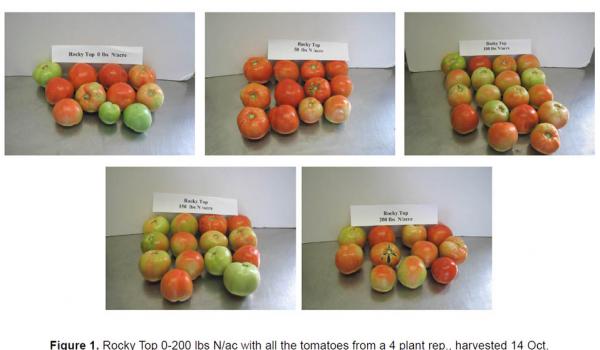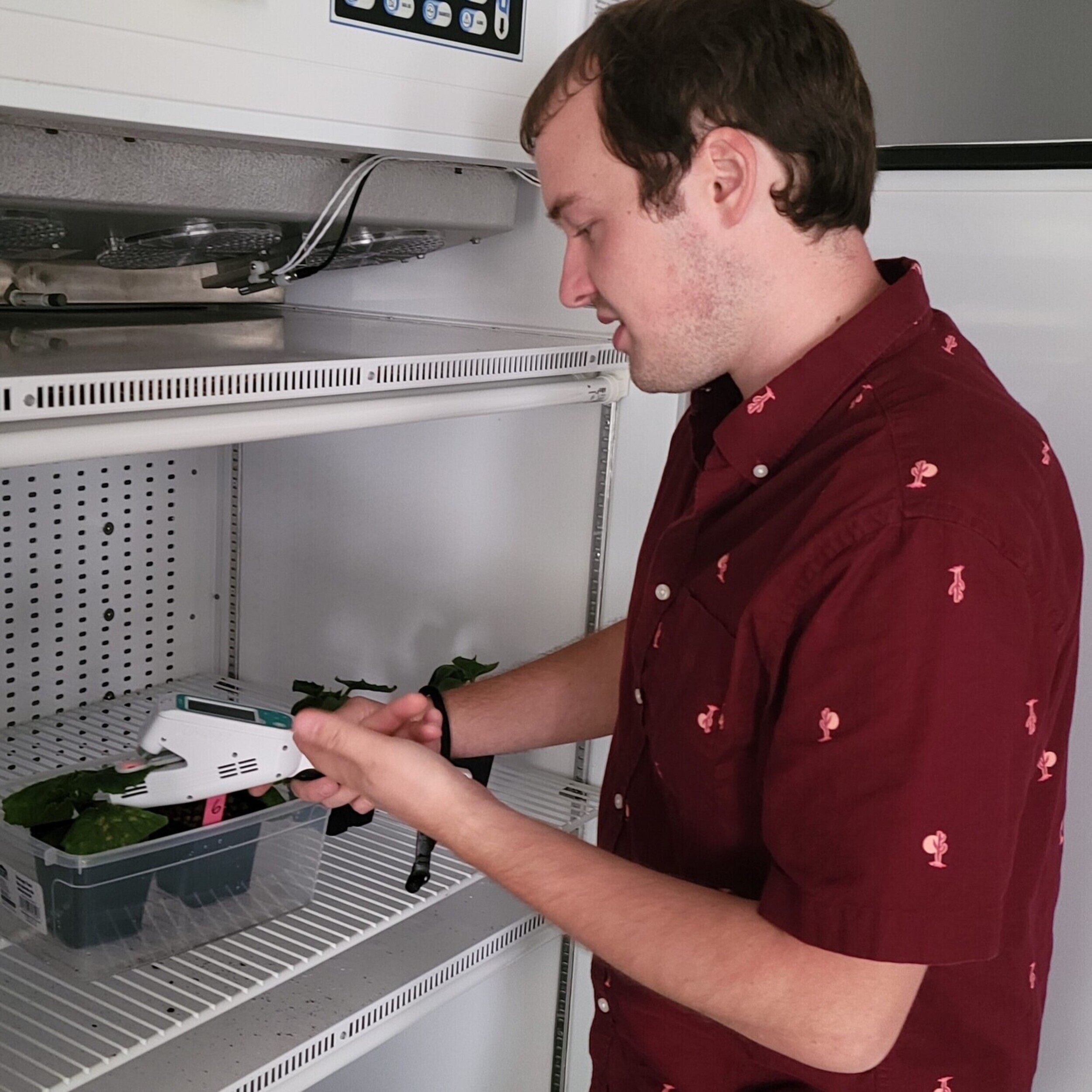Tomato Nitrogen Rate Study
Introduction: The standard recommendation for tomatoes from the Mississippi State University Soil Testing Lab is 120lbs of actual Nitrogen per acre (N/ac). A number of Mississippi growers and extension agents have questioned if this was adequate. In the 2014 Vegetable Crop Handbook for Southeastern United States 200. 5lbs of N/ac is the recommended rate. This study was conducted to determine yield differences from the Nitrogen rates of 0, 50, 100, 150, and 200lbs N/ac applied in split applications to 3 tomato varieties, field grown in north Mississippi.


